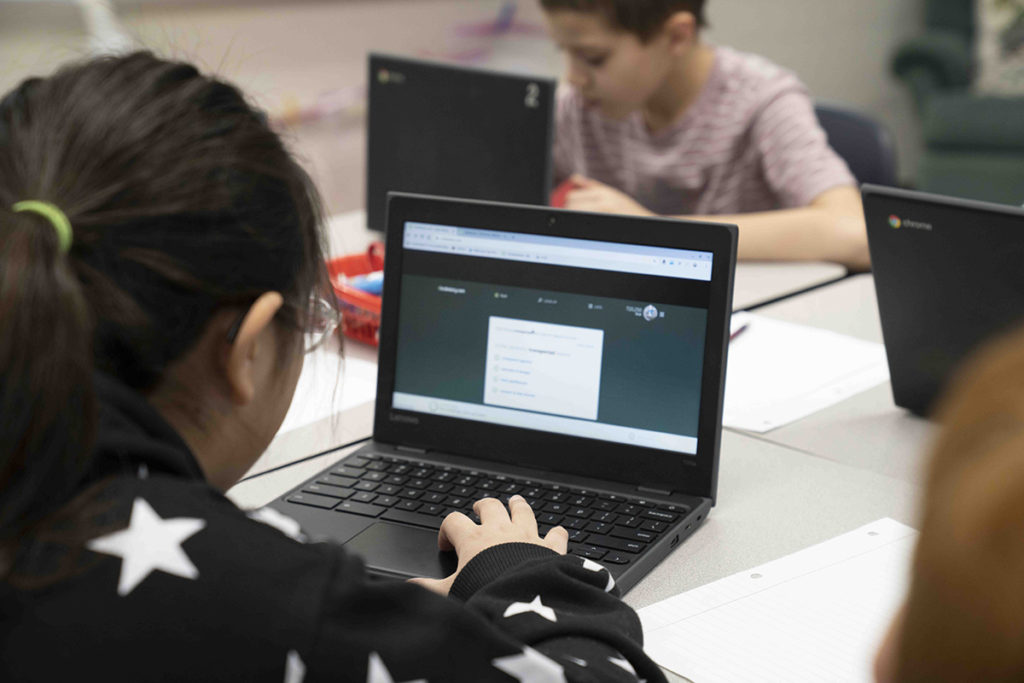
Several electric cooperatives that provide broadband internet are taking steps to keep rural communities connected during the coronavirus pandemic, including measures that go far beyond a Federal Communications Commission call to sustain service for low-income customers.
Those steps include delivering higher connection speeds, even for members who subscribe to more modest plans.
“Aside from being an early supporter of the FCC’s pledge, we’ve also increased our bandwidth to all of our fiber-to-the-home member-customers to 1 gig at no additional cost during this public health crisis,” said Michael Burrow, CEO of NineStar, an electric and communications co-op headquartered in Greenfield, Indiana.
“Because our service area is just outside of Indianapolis, we are seeing a huge influx of our members who are now working from home and, with schools likely being closed for an extended period of time, students being placed in e-learning circumstances. We feel if we can support our members and customers being able to conduct some parts of their business and personal lives at home, we should be doing that.”
FCC’s 60-day “Keep Americans Connected Pledge” asks internet providers to sustain service to any residential or small-business customers despite lack of payment, waive late fees because of economic distress, and open Wi-Fi hotspots to those in need.
Co-Mo Connect, the broadband business of Co-Mo Electric Cooperative in Tipton, Missouri, made the pledge and is increasing its subscribers’ internet speeds to their next service tier without charge as the pandemic amplifies the need for broadband at home.
“We are local, and our mission is to enhance the quality of life for the region we serve,” said Co-Mo Connect CEO Aaron Bradshaw. “We strive to achieve that every day and, as this virus spreads through our area, we must all do what we can to help.”
Kit Carson Internet, a subsidiary of Kit Carson Electric Cooperative based in Taos, New Mexico, said it will uphold the FCC commitments until the governor ends the health emergency and the schools reopen. The co-op said it will also work to ensure students in its service area stay connected through 14 public internet hotspots. It will offer reduced rates and waive fees to all students and new customers with high school seniors or college students.
KCI is also waiving fees for state and federal employees who can work from home if they have broadband internet access.
“KCI is adjusting to the needs of our community and customers. This pledge is only one step we have taken,” said Mark Poche, manager of Kit Carson Internet.
BARC Connects is setting up free wireless hotspots in four Rockbridge County school parking lots to help students in rural Southwest Virginia continue their education online at a safe social distance inside vehicles.
The broadband subsidiary of the Millboro-based BARC Electric, which has also signed the FCC pledge, expects the hotspots to be fully operational by April 2.
“As we all navigate these unprecedented times, BARC desires to provide as much internet access as possible to aid our students, teachers and educational institutions,” said Tish Blackwell, communications specialist at the co-op.
Cathy Cash is a staff writer at NRECA.
Read more on the electric co-op response to the COVID-19 Pandemic
See NRECA’s COVID-19 hub on cooperative.com for key resources for co-ops, including guidance on business continuity planning and communication, as well as event schedule changes.